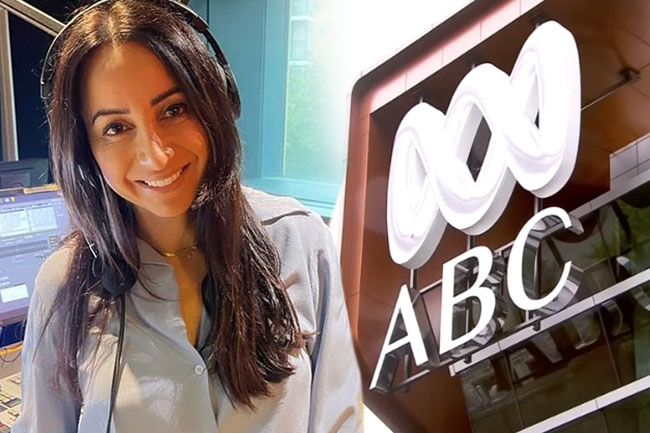For the sake of impartiality, the media must extricate itself from the vortex of the Prime Minister's "influence", writes Dr Jennifer Wilson.
On Tuesday evening, Prime Minister Scott Morrison hosted a private drinks party for select journalists covering the election campaign. The party was held in a pub in Penrith, and the journalists were bussed to the venue.
We only know this because an uninvited young man, Adisen Wright, gate-crashed the party and filmed his encounter with Scott and later the AFP.
The Australian media has long been criticised for what is perceived by many as an unnecessarily close and unhealthily co-dependent relationship with politicians. Public anger about this has escalated since the election was announced, as many believe there is a pro-Coalition bias in legacy media that results in journalists subjecting the Leader of the Opposition, Anthony Albanese, to greater scrutiny than the incumbent.
So it’s hardly surprising that news of Morrison hosting journalists at a private function two days into the election campaign has aroused the ire of many punters. Naturally, people want to know who paid for the evening. In the video Morrison is heard telling Adisen, “this is a private event. I’m hosting drinks for the media”.
As the Government is in caretaker mode, the taxpayer definitely should not be footing the bill. Questions remain unanswered over who funded the event.
The question is straightforward and in the public interest, and no journalist so far has addressed it. That nobody is willing to answer such a simple question inclines one to assume the answer is controversial.
Of course, if you’ve benefitted from the Prime Minister’s hospitality, you can’t really ask public interest questions such as “who paid for this” if you ever want to be invited again. This is, in a nutshell, exactly why journalists should not be going to parties just for them, hosted by the Prime Minister.
What is even more alarming is that journalists questioned about this practice have either refused to answer or have defended such occasions. They don’t see a problem. The problem is apparently with those of us outside the tent who do not understand what journalism is and what they need to do to get stories.
While, of course, everybody understands that journalists need to cultivate sources, that is not the same thing as partying with Government MPs and ministers at the beginning of an election campaign when, at more than any other time, impartiality is paramount.
The relationship must be professional and it must be seen to be professional, otherwise, the fourth estate is compromised. Public criticism of much of the media suggests they are already perceived as compromised.
Contrary to journalistic opinion, this is not the public’s problem. It is the media’s problem; one that they seem alarmingly disinclined to acknowledge, let alone address.
According to Mr Rowland, these occasions are “a thing.” It’s interesting that journalists have apparently not questioned the ethics of this “thing,” and that the very fact that it is a “thing” seems to be a justification for its continued existence.
To many of us, it is troubling to know that journalists, whom our democracy requires to be impartial enough to speak truth to power, regularly and unquestioningly engage socially with that power. It is ludicrous to demand that we believe these interactions do not influence their work.
That they must be insiders to report on the insiders is an abject and disingenuous justification for such mingling. Journalists know what politicians expect when they extend their hospitality. In accepting invitations, they agree to participate in the game.
It is the media’s role to prioritise the public interest. We depend on them to do this. They are vital interlocutors between us and those who govern us. We expect them to be on our side. As things stand in Australia today, and as is evidenced by the hostility directed towards them, the fourth estate is not perceived to be on our side, but aligned instead with the rulers.
While journalists argue that they need such events to properly do their work, what’s in it for the politicians? Morrison is likely the most transactional politician we have ever seen and most of his colleagues are also transactional because to some degree, a politician must be.
The private drinks party can be described in the same way.
Dr Jennifer Wilson is an IA columnist, a psychotherapist and an academic. You can follow Jennifer on Twitter @NoPlaceForSheep.
Related Articles
- CARTOONS: Mark David is flooding the nation with advice
- Federal Government's flood response branded a 'failure' as recovery begins
- Morrison, Frydenberg, Joyce and Cash fundraise for Labor electorates
- Twelve more things revealing Australia’s poor economic management
- Coalition faces the final curtain
 This work is licensed under a Creative Commons Attribution-NonCommercial-NoDerivs 3.0 Australia License
This work is licensed under a Creative Commons Attribution-NonCommercial-NoDerivs 3.0 Australia License
Support independent journalism Subscribe to IA.













